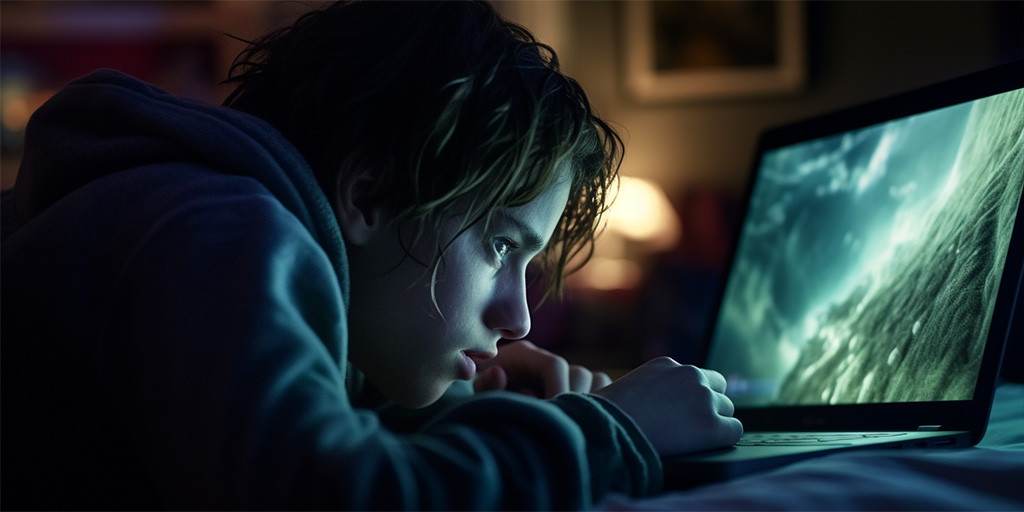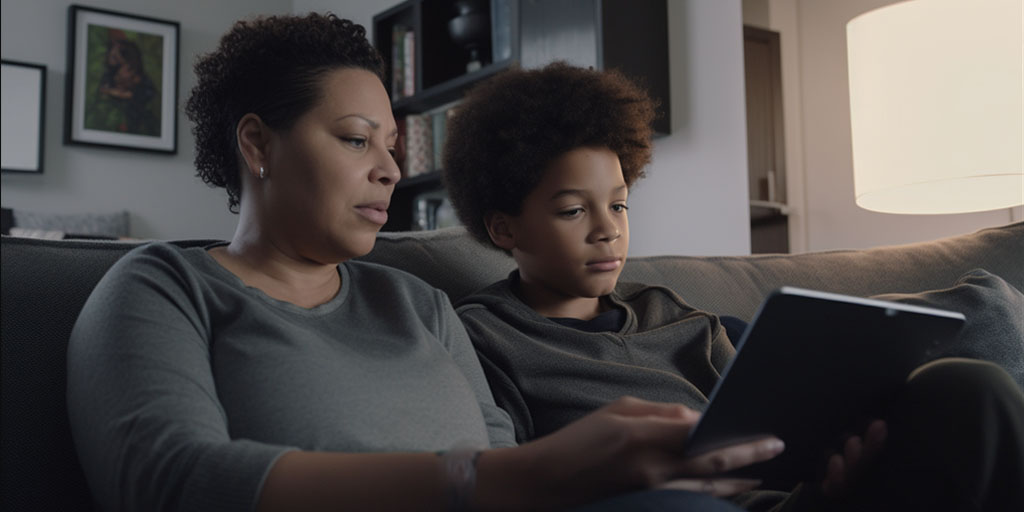
From flat-earthers, to QAnon, to PizzaGate, and even the Titanic, the internet is rife with conspiracy theories — and teens are particularly susceptible to them. Read on for more information on conspiracy theories in the digital era, along with tips on talking about them with your kids.
Conspiracy theories pop up everywhere, but they have particularly problematic histories on YouTube and TikTok. This is a challenge given how much time tweens and teens spend on social media — often several hours a day. There’s also concern among some researchers about the role gaming platforms can play in spreading misinformation and conspiracy theories.
“On social media, repetition substitutes for validation,” Russel Muirhead, a Dartmouth College professor and co-author of "A Lot of People Are Saying: The New Conspiracism and the Assault on Democracy" told Wired in 2020. “Repetition is what breathes air into conspiracy theories, and social media is all about repetition.”
Several studies have shown 14-18 year-olds to be especially susceptible to conspiratorial thinking. The teenage years are a time when kids are looking for community and seeking significance — both of which some people find in conspiracy theories. Add this to teenagers’ still-emerging critical thinking skills, and you have the perfect breeding ground for falling prey to conspiracies. Disinformation campaigns and unmonitored algorithms take advantage of this and often directly seek out younger users on these platforms to steer them toward more misleading content.
Here are a few things that may indicate your child is engaging with conspiracy theories:
A recent study examining the relationship between social media and conspiracy theories found that the more likely a person is to believe conspiracy theories, the more social media influences their thinking. So, preventing your child from believing in conspiracy theories in general is the best way to prevent them from falling down social media conspiracy theory rabbit holes.
Here are a few actions you can take to help prevent your child from adopting a conspiracy mindset in the first place:
Allow your child to share their beliefs without fear of judgment or ridicule. Rather than scolding them for differing beliefs, encourage them to explain how their opinion was formed and then respectfully introduce other possibilities. The more they feel comfortable sharing their beliefs with you, the more of a role you can play in steering them away from conspiracy theories.
Simply telling your children what to think teaches them to blindly accept what they’re told. This lack of questioning may open them up to conspiracy theories. Instead, explain why you believe what you do and how you formed those beliefs. Ask them what they think and be open if they express opinions different from your own.
Promote evidence-based thinking with your children by showing them how to seek out credible sources. Talk through common conspiracy theories with your children to demonstrate how to spot them.
Periodic check-ins on your child’s digital activity, as well as monitoring tools, make it more likely you’ll spot a problem with conspiracy theories early so it can be promptly addressed.

As a parent, you can do everything possible — and your kid may still fall for a conspiracy theory. Fortunately, there are strategies you can take to help them.
The internet is full of conspiracy theories, and teens are particularly susceptible to them. With the right approach, you can decrease the chances of your child getting caught up in conspiracy theories and help them think critically if they do fall for one.